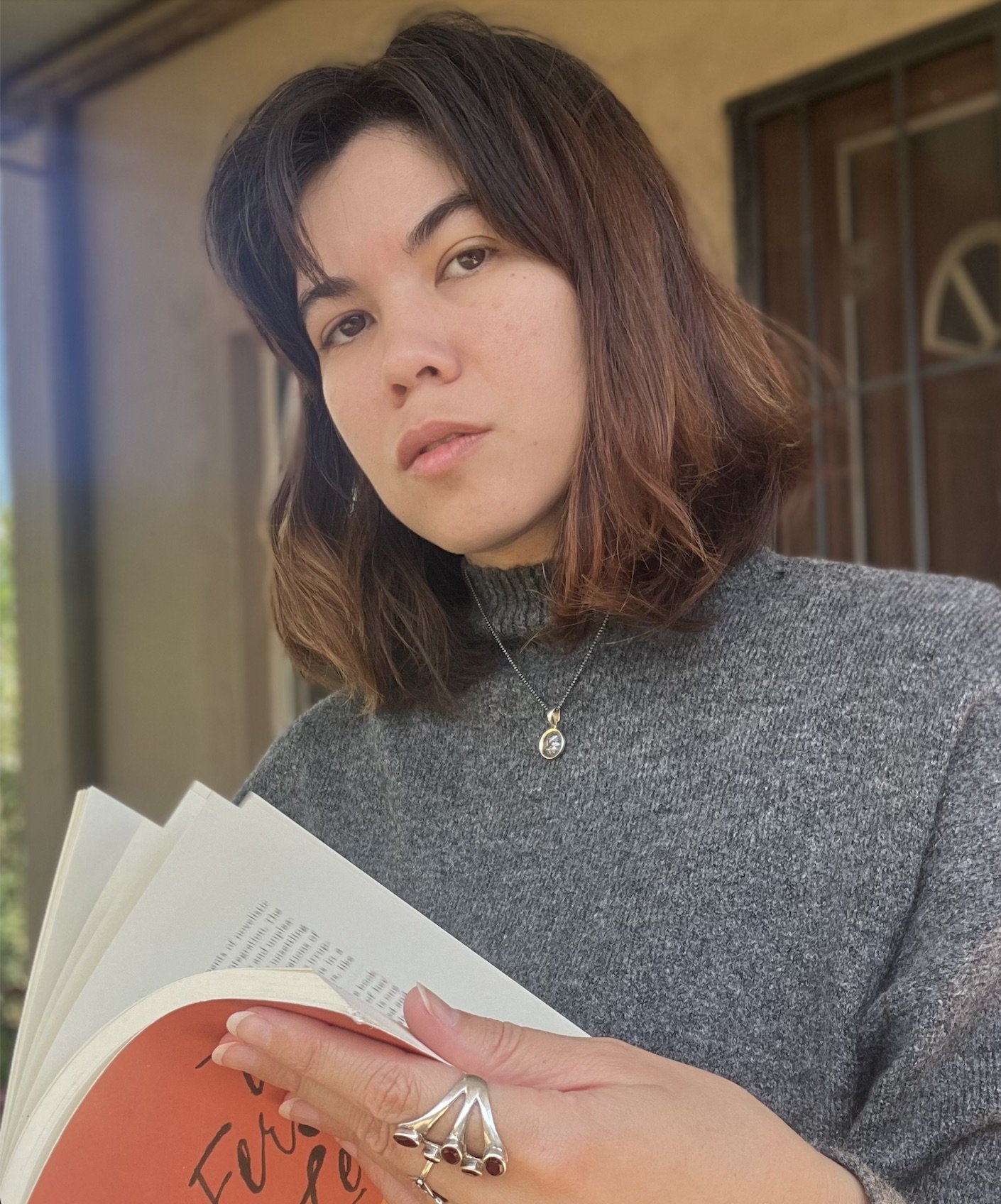Interview with Susan Holcomb
By Zoe Marzo
How did you go about compiling stories for Wolfbaby?
I’d written a bunch of flash pieces after my daughter was born. Many were about motherhood, but a lot were about childhood and growing up. So I put together the pieces that matched those themes and found I had these two threads that sort of told a story, in a fragmented, backwards kind of way.
Why does short form work for the themes explored in your collection?
I often wish, watching my children play or learn something new, that I were a poet. Some beautiful or funny or weird moment will occur, and I’ll have this feeling like I just want to capture it in ice, just create this little crystalline thing that contains just that moment or feeling and not necessarily all the context around it. Short form prose comes close to that for me: just catch a vibe, capture an image, get a single idea across, and let it be.
What are your thoughts on the relationship between truth and fiction?
I’ve had several people ask me of this collection: “Is it true?” By which they mean: did this all really happen? I think they’re picking up on the fact that a lot of these stories draw images and details from life, even though impossible and fantastic things also happen in them (I haven’t actually died and had arguments with other dead people, or transformed into a tiger, even though the “I” speakers of these stories say they did those things). Because this collection had me working through a lot of my own experiences with motherhood and childhood, the pieces are more grounded in my lived experience than some of my other writing. In this instance I was able to find “truth” by starting from real life, then making up a bunch of stuff to try to get to the bottom of things, to unearth the felt truth underneath the lived truth.
How do you know if a piece works?
It’s amazing, with flash and microfiction, how much an ending can matter. I often find I’ll forgive all sins if a writer can just stick the landing. In my longer-form writing, I was used to asking about narrative arc, character development, what does this character want, and do they change by the end? With flash, I’m asking: does this feel alive, does it move? I can write the first two thirds of a flash piece, dither for a while about the ending, and then suddenly—pretty viscerally—arrive at an ending that gels, surprises, adds a feeling of ellipsis, opens a new space for the piece—you know it when you see it, I suppose. The important thing is not to close the loop too tightly. Reading is so key to this—Vestal Review, SmokeLong Quarterly, The Disappointed Housewife. I get the Best Microfiction and Best Small Fictions anthologies and read them cover to cover. Reading builds my intuition for what works.
Susan Holcomb holds an MFA in writing from Vermont College of Fine Arts and studied for a PhD in physics at Cornell. Her writing has appeared or is forthcoming in swamp pink, Southern Indiana Review, The Boston Globe, Epiphany, Seneca Review, and elsewhere. Her chapbook Wolfbaby, a collection of flash fiction, won the 2023 Cupboard Pamphlet Contest and was published this year. She lives in Los Angeles with her husband and two small children.
Zoe Marzo is a writer in Los Angeles. She holds an MFA in Writing from Vermont College of Fine Arts. Her essays and fiction have appeared in The Rumpus, Tahoma Literary Review, Luna Station Quarterly, Popshot, Flash Fiction Magazine, Bending Genres, Paperbark, and elsewhere. She is currently studying for a PhD in depth psychology from Pacifica Graduate Institute with an emphasis in Jungian archetypal studies.


